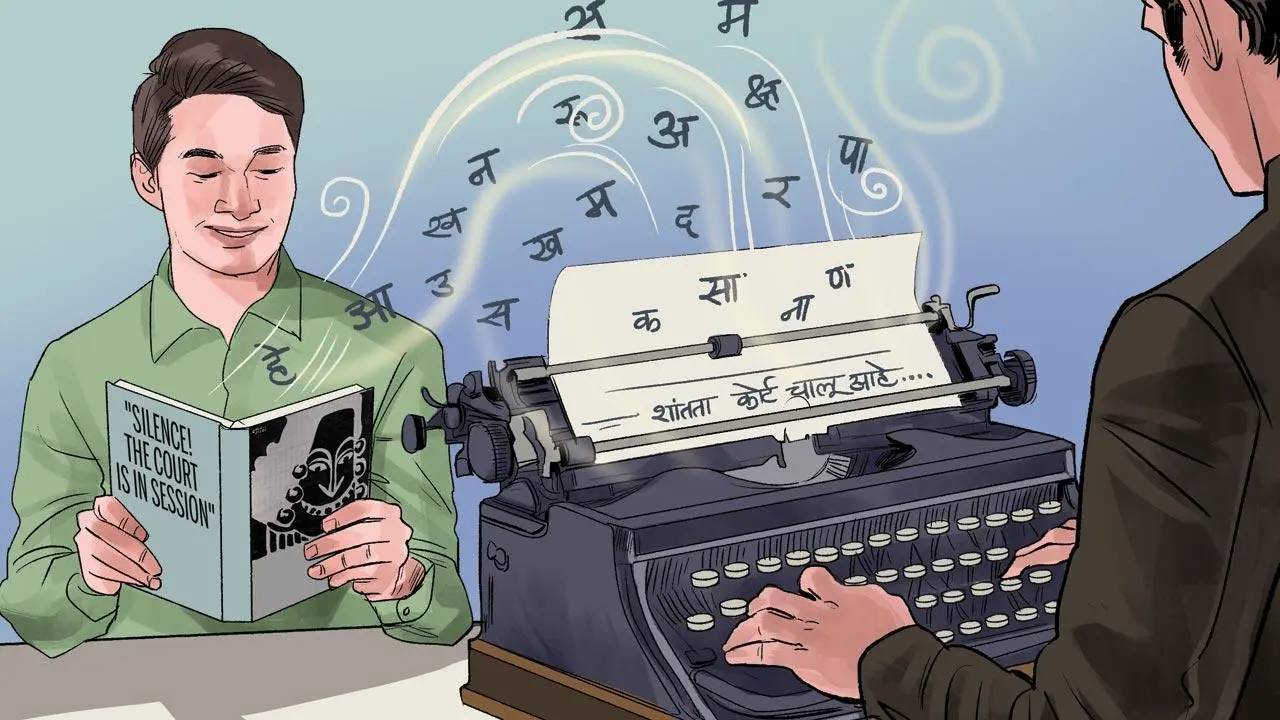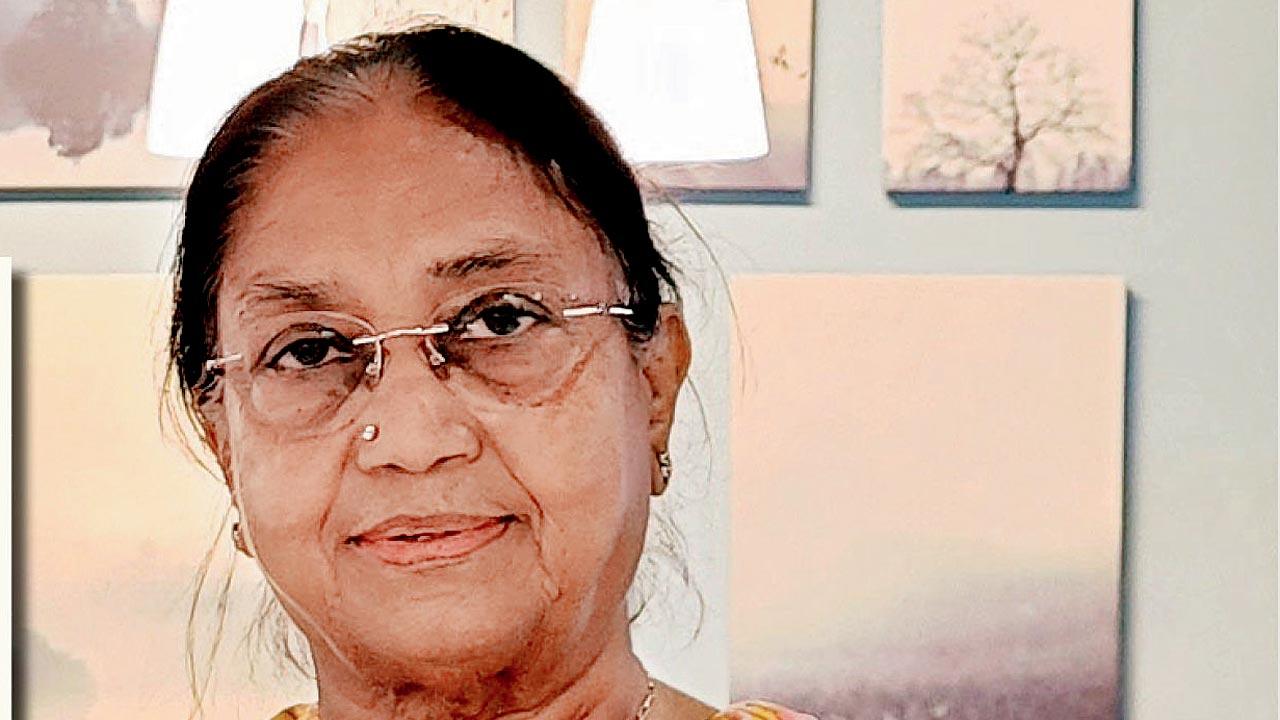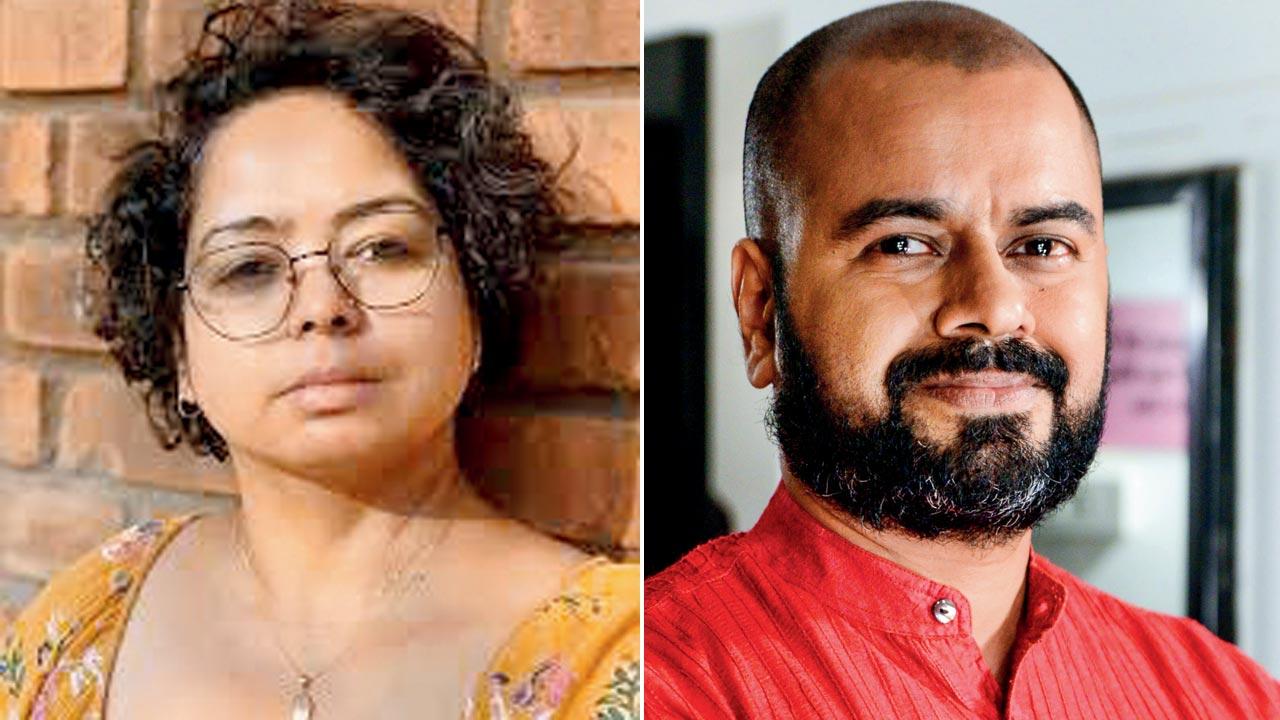A book of Kannada stories translated into English is on this year’s International Booker Prize shortlist, and the literary world hopes this boosts international appetite for Indian writing. However, there is still a long way to go

Illustration/Uday Mohite
In his collection of essays and criticism, Salman Rushdie once said, “It is normally supposed that something always gets lost in translation; I cling, obstinately, to the notion that something can also be gained.”
This time, this gain is for India — in the form of an International Booker Prize nomination for an English translation of a Kannada work, the first ever for an Indian regional language. Writer, activist, and lawyer Banu Mushtaq’s story collection, Heart Lamp (Hrudaya Deepa), was featured in this year’s International Booker Prize shortlist.
Originally in Kannada, her works have been translated into Urdu, Hindi, Tamil, and Malayalam, but the English translation came only this year. Translator Deepa Bhasthi is co-nominated for the award. The winners will be announced on May 20.
 Banu Mushtaq’s book explores the lives of women in Muslim communities in south India Pic/X @andothertweets
Banu Mushtaq’s book explores the lives of women in Muslim communities in south India Pic/X @andothertweets
This development comes amid English translations of regional literature by multiple publishers, especially of Dravidian languages. Translated Marathi and Hindi literature is in demand, too.
Mushtaq, renowned in South Indian literary circles, never anticipated that stories from Hassan, a tier-2 city in Southern Karnataka, would appeal to the Booker jury. Lauding Bhasthi, Mushtaq is reported to have said, “They understood the culture and the context. That is the great thing!”
Bhasthi deserves the credit, as translation is often regarded as one of the toughest tasks in literature. This thought is echoed even by veteran writer, poet, and lyricist Javed Akhtar, who has translated the works of laureates such as Rabindranath Tagore. Akhtar once remarked at a literature festival, “Translation isn’t merely about converting words. It’s about carrying the soul of a text across languages.”
 Deepa Bhasthi and Bhushan Korgaonkar
Deepa Bhasthi and Bhushan Korgaonkar
So, how did Bhasthi do it? She neither came from the same region of Karnataka, nor spoke the same dialect, nor shared the same cultural or religious background. In a conversation with Sunday mid-day, she says, “It is a creative adaptation in a way. Every book comes with its own cultural and linguistic complexities. I studied the context thoroughly, which in this case, is a setting in a Kannada Muslim community, before rendering it into the target language (English). I decided to retain many Kannada and Arabic words. For example, reducing ‘dua’ to just ‘prayer’ would lose cultural weight.”
On how stories from a small city in Karnataka may have resonated with an international audience, Bhasthi says, “Western markets publish very little translated literature. But these stories have universal themes, such as patriarchy. So, despite a different setting, it’s relatable.”
However, despite growing interest in regional literature, experts say good translations, which can appeal to both national and international audiences, are still a rarity. Bhushan Korgaonkar, a Marathi and English writer and translator, says, “The demand from non-Marathi speaking populations has increased. But the challenge is that certain cultural concepts are language-specific. The book I translated, Anna He Apoorna Brahma, has brilliant wordplay in the title itself, but the direct translation would lose the wordplay. So, in English, it’s simply called Dalit Kitchens of Marathwada.”
Korgaonkar agrees with Bhasthi’s approach. He thoroughly researches the culture, revisits the draft multiple times, and evaluates whether it would make sense to a wider audience.
But good translations are seemingly an individual effort. Korgaonkar says, “There’s no organised system for translations. Even universities like Savitribai Phule Pune University or Mumbai University don’t offer proper Marathi translation studies programs.”
Malayalam poet and translator Ravi Shankar argues that in a country that speaks over 19,500 languages or dialects as mother tongues (as per government data), knowing English is a privilege, and mastering it well enough to translate literature is an even greater one. As per the last census, only 26 per cent of Indians are bilingual, while just seven per cent speak three languages. Despite this disparity, the National Book Trust, an apex government body established to promote reading, has published 4000 translations across 58 Indian languages, while private publishers have their own separate figures.
Experts we spoke to acknowledged the demand, which drives publishers to release translated literature. However, both Bhasthi and Korgaonkar agree that among regional languages, only Malayalam and Tamil have relatively strong translation ecosystems. Bhasthi says, “Kannada still lags behind. Hopefully, this Booker recognition will encourage more translations.”
 Subscribe today by clicking the link and stay updated with the latest news!" Click here!
Subscribe today by clicking the link and stay updated with the latest news!" Click here!








